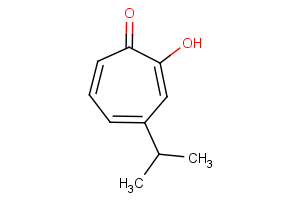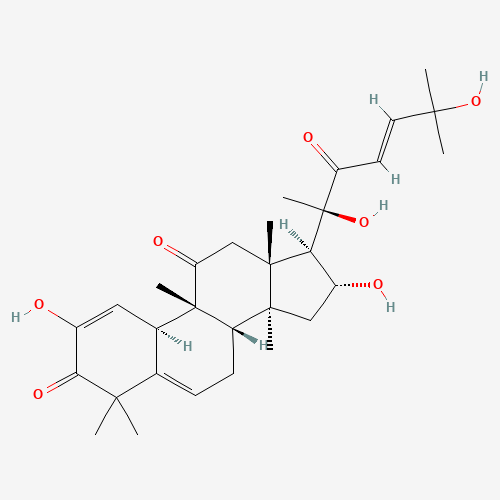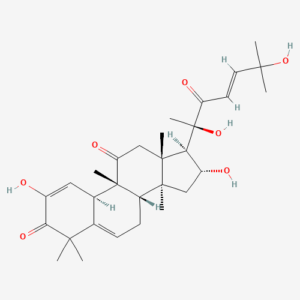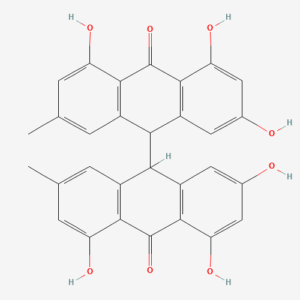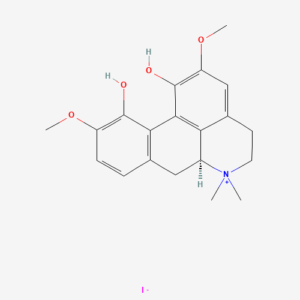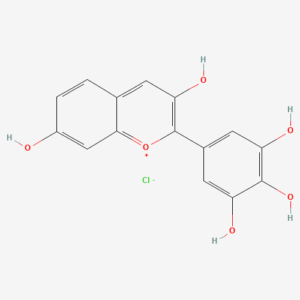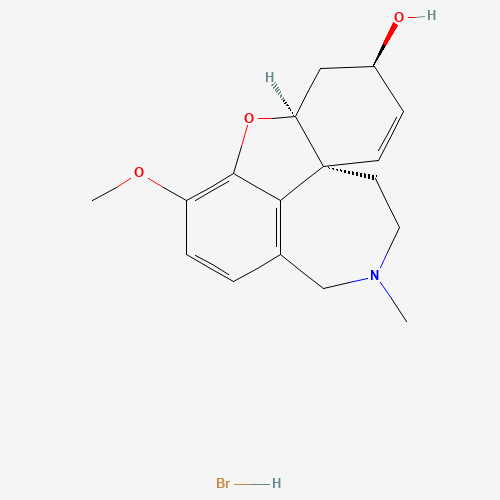
Galanthamine hydrobromide
| CAS Number | 1953-04-4 |
| IUPAC Name | (1S,12S,14R)-9-methoxy-4-methyl-11-oxa-4-azatetracyclo[8.6.1.01,12.06,17]heptadeca-6(17),7,9,15-tetraen-14-ol;hydrobromide |
| Mol. Formula | C17H22BrNO3 |
| Mol. Weight | 368.3 |
| Synonyms | Galanthamine hydrobromide, Galantamine hydrobromide, 1953-04-4, Reminyl, Nivalin |
- Description
Description
Introduction to Tiopronin
Tiopronin is a pharmaceutical compound primarily used for the treatment of cystinuria, a condition characterized by the formation of cystine stones in the kidneys, ureter, and bladder. As a thiol compound, tiopronin works by binding to cystine, making it more soluble and easier to excrete through the urine. This helps in reducing the recurrence of cystine stones, thereby improving the quality of life for patients with cystinuria.
Mechanism of Action
The efficacy of tiopronin lies in its ability to reduce cystine levels in the urine. It achieves this by interacting with the disulfide bonds in cystine, converting it into a more soluble cysteine complex. This transformation aids in the prevention of stone formation, which is a major concern for individuals suffering from cystinuria. Regular monitoring and dosage adjustments under medical supervision are crucial for maximizing the therapeutic benefits of tiopronin while minimizing potential side effects.
Benefits and Usage
Tiopronin is particularly beneficial for patients who do not respond adequately to dietary modifications and increased fluid intake, which are often the first-line treatments for cystinuria. By significantly reducing the recurrence rate of cystine stones, tiopronin helps in managing the chronic nature of the disease. Additionally, it is important to note that tiopronin should be taken as prescribed by a healthcare professional, and regular follow-ups are recommended to monitor its effectiveness and adjust the treatment plan as necessary.
Considerations and Side Effects
While tiopronin is generally well-tolerated, potential side effects may include gastrointestinal disturbances, rash, and fatigue. It is also important for patients to inform their healthcare provider of any other medications they are taking, as tiopronin can interact with other drugs. Regular blood tests may be required to monitor for any adverse effects, especially in long-term use. Patients should adhere to their prescribed regimen and report any unusual symptoms to their healthcare provider promptly.

